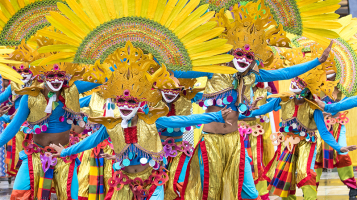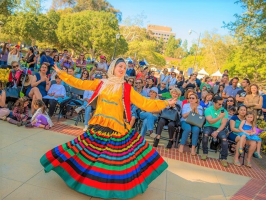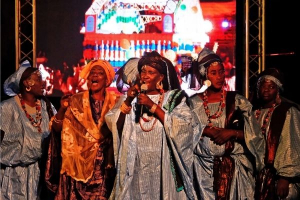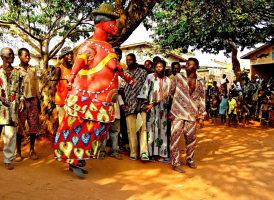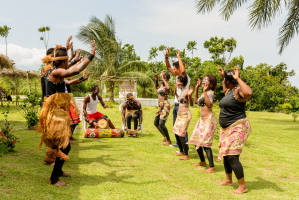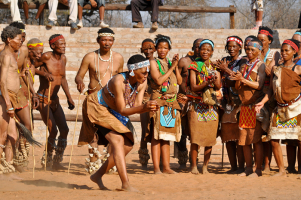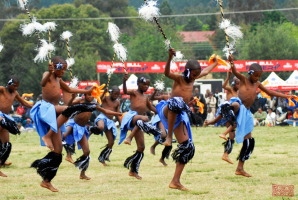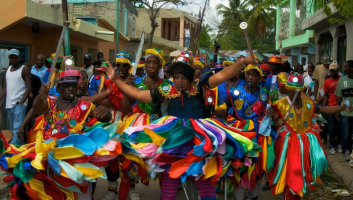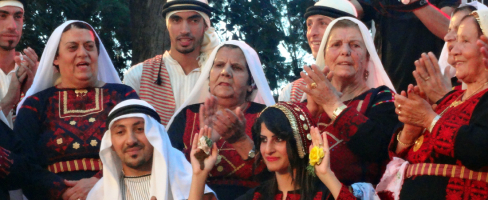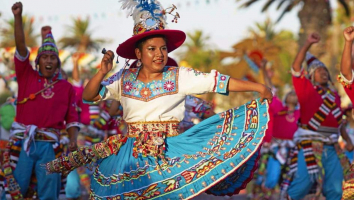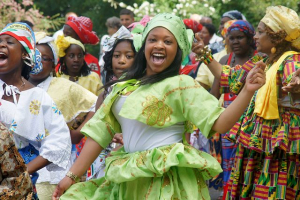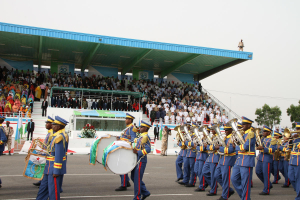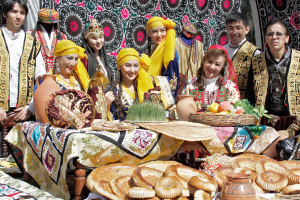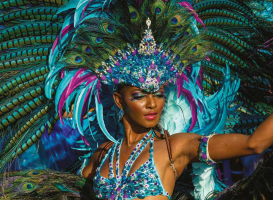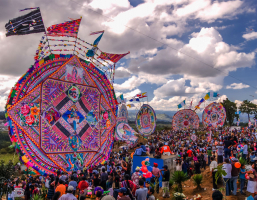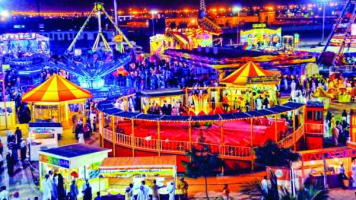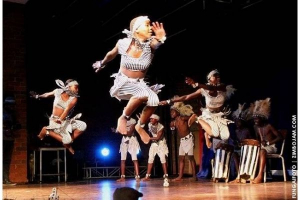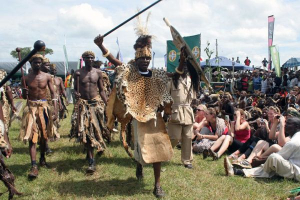Top 10 Most Famous Festivals in Gambia
The Gambia is the smallest country on mainland Africa and is completely bordered by Senegal, except for its coastline, which faces out to the Atlantic Ocean. ... read more...While The Gambia might not be the first place that comes to mind when you think of travel destinations, this tiny West African nation really packs a punch. Along with perfect golden beaches and vibrant markets, you’ll find that there are a quite number of festivals in Gambia you definitely cannot miss once you’re here. Such events are aimed at showcasing The Gambian music, art and dance, as well as helping to promote cultural heritage. Wanna know the most famous festivals in Gambia? Say no more, let’s dive right into the list below!
-
One of the most famous festivals in Gambia is the International Roots Festival (formerly Homecoming), held in various locations biennially in May. Inaugurated in 1996, the festival's original target audience were black Americans keen to reconnect with their roots in a joint celebration of African cultural heritage. Now divided with all nationalities in mind, but especially individuals of African descent, it attracts Gambians of all ethnicities, resident and expatriate, plus other Africans and people from the African Diaspora.
It provides opportunities for atonement and reconciliation for those whose ancestors were engaged in slavery and the descendants of Africans forced into slavery. Its rich programme of events includes cultural performances from different ethnic groups, tours to historic sites such as Juffure & James Island, dance & drum workshops, carnival parades, symposia, trade fairs, traditional sporting events and religious services.
Where: Banjul
When: 6th - 13th May
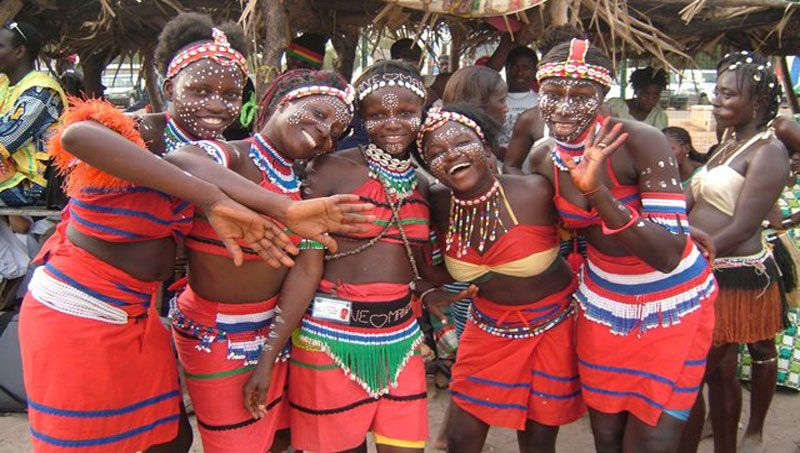
Photo: Pinterest Video: MSYInternational -
Independence Day celebrates the Gambia’s declaration of independence from Britain in 1965. Most communities stage events at stadiums and football fields. These evolve military parades, school children marching past in impeccable uniforms, military and traditional bands, and cultural troupes.
The Independence Day celebration is one of the most highly anticipated events every year. This festival showcases the Gambia’s hospitality and culinary art in its diversity. It is an exhibit of local food immersed with entertainment of local performances. The festival provides a “taste of the Gambia” and compliments the international foods that are also found in the Gambia.
When: 18th February
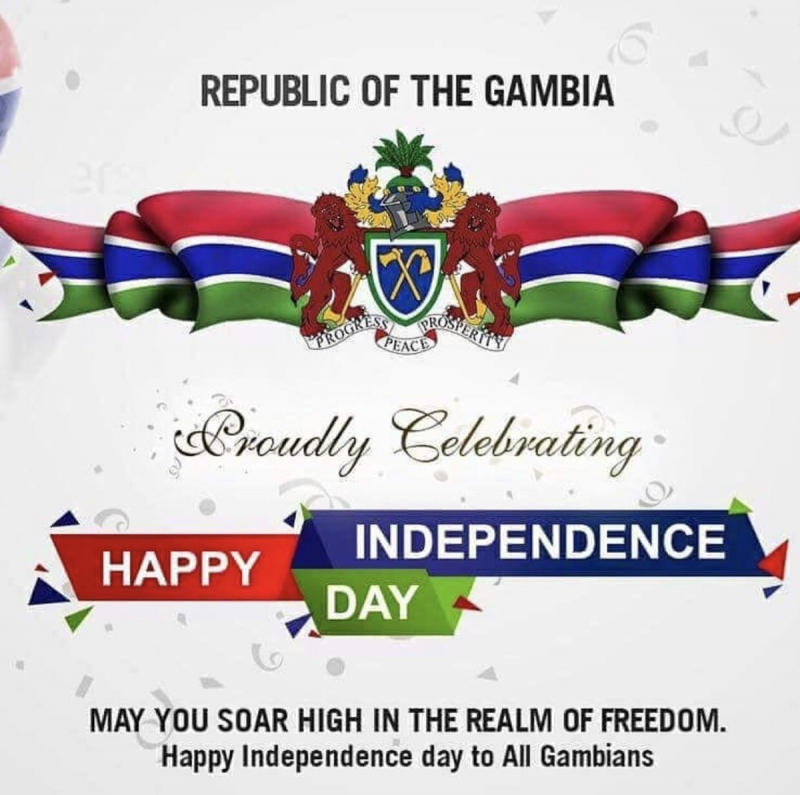
Photo: Twitter 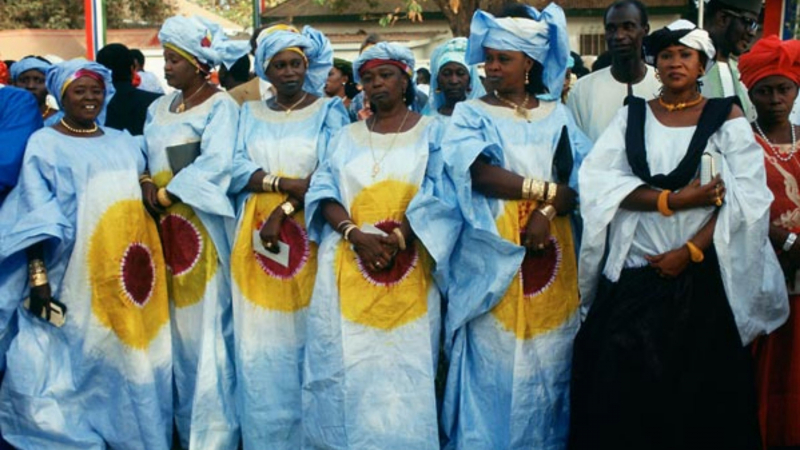
Photo: Africa Imports -
The Banjul Demba Cultural Festival is one of the most popular cultural festivals in Banjul and in Gambia in general. It’s a long-standing display of the local Banjul culture and masquerade parade each Christmas day to New Year’s in January.
Banjul, the capital city of Gambia, is a melting pot of ethnicities. All the major ethnic groups in the country are found here, as well as migrants from the neighboring countries, vying to showcase their masquerades and performance traditions centered on arts, dance and music. Each year, the cultural fest attracts thousands of Banjulians both home and in the Diaspora.
The Banjul Demba Cultural Festival is a positive step in promoting cultural diversity and mutual appreciation of each other’s cultures and religious tolerance among the people of Banjul. Showcase the traditional masks and masquerades of the ethnics in Banjul, both Christians and Muslims living in harmony.
Where: Banjul
When: 25th December - 1st January
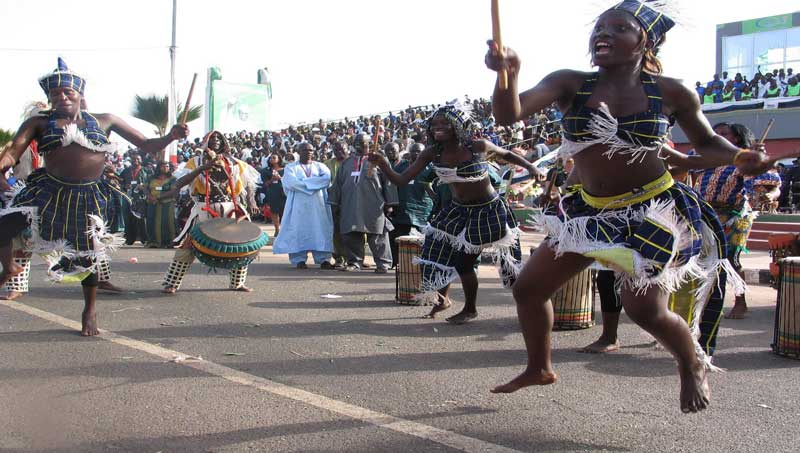
Photo: Culture Trip 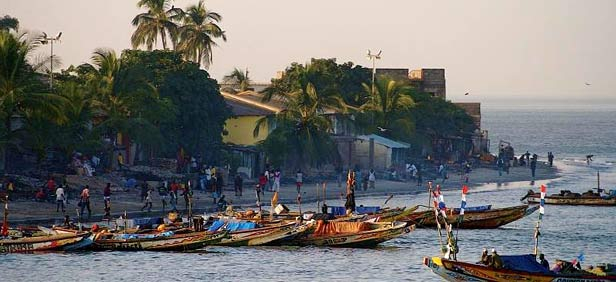
Photo: JourneyMart.com -
Sanyang as the origin of the Kombo settlement is occupied by several ethnicities whose activities mainly centered on the sea trade. This festival showcases the Kombo cultures and traditions in their diversity from the 4 human life cycle ceremonies of birth, circumcision, marriage and burial with their performance traditions. Its highlight is a daylong cultural and musical jamboree at the beachside till day break.
The festival is a celebration of diverse cultures living in peace and harmony and showcasing their cultural and traditional rituals to the visitors. The pilgrimage to “Berewuleng” rock at the seaside is a reflection of their ancestral lineage to their first settlement with their atheist religion of “Jalang” worshipping.
Where: Sanyang, Kombo South
When: January (last weekend)
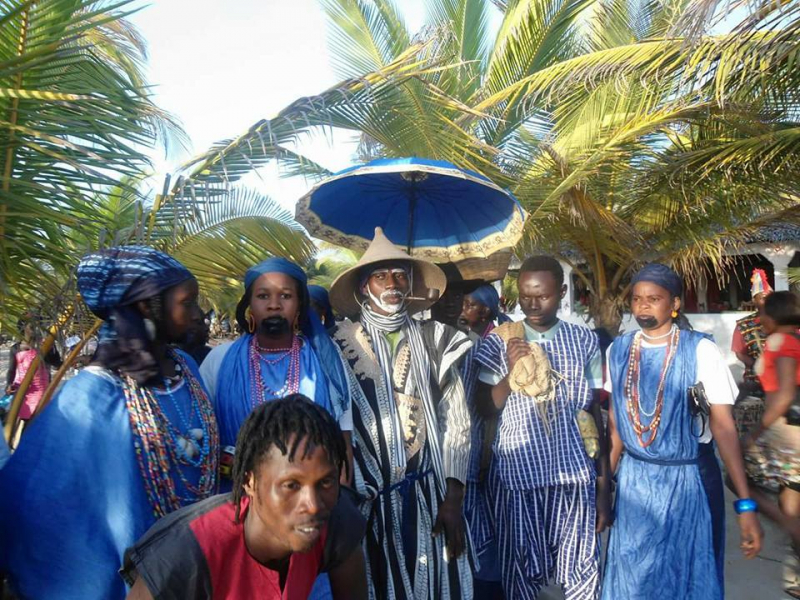
Photo: Sanyang International Cultural Festival 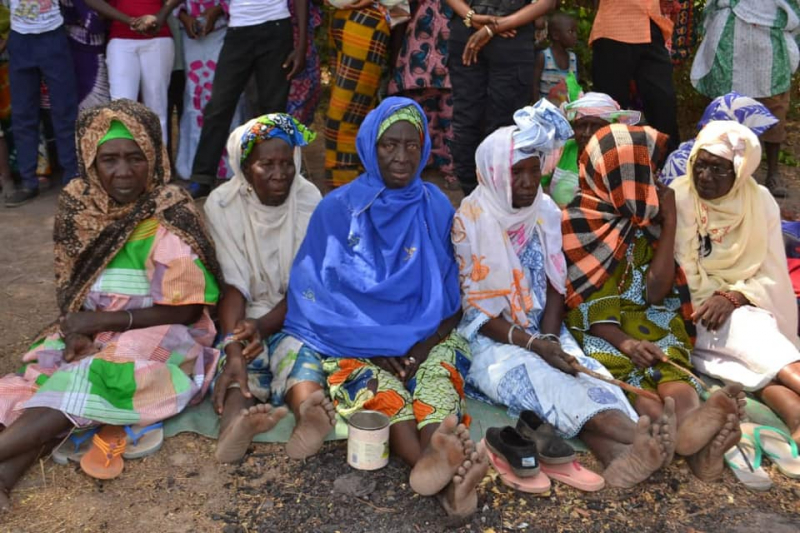
Photo: Sanyang International Cultural Festival -
It is an annual Festival organized by the Kartong Community Development Association in the second week of February. This festival includes a cultural display of various choreographic dances and traditional music of the two border communities of Kartong in the Gambia and Casamance in Senegal for a long weekend. It involves drumming and dance training sessions for visitors wanting to learn the rhythms of the Djembe and the two cultures separated by an imaginary boundary’s music and dance.
The cultural festival in Kartong has been a key platform where rich Gambian culture is showcased for the preservation of both present and future generations. It has over the years proved to be a major cultural revival initiative that brings together people of various backgrounds. But there is also another important dimension to this festival - it promotes Gambia tourism, for which the community has been known for many years now. Home to the famous sacred place of 'Folonko', which attracts many visitors, Kartong is well noted for playing a great role in eco-tourism which has attracted small-scale investments to the community. Its strategic location as the last village sitting on the border with neighbouring Senegal, coupled with its proximity to the sea, make the community a historic and potentially viable economic settlement.
Where: Kartong, Kombo South
When: February (2nd weekend)
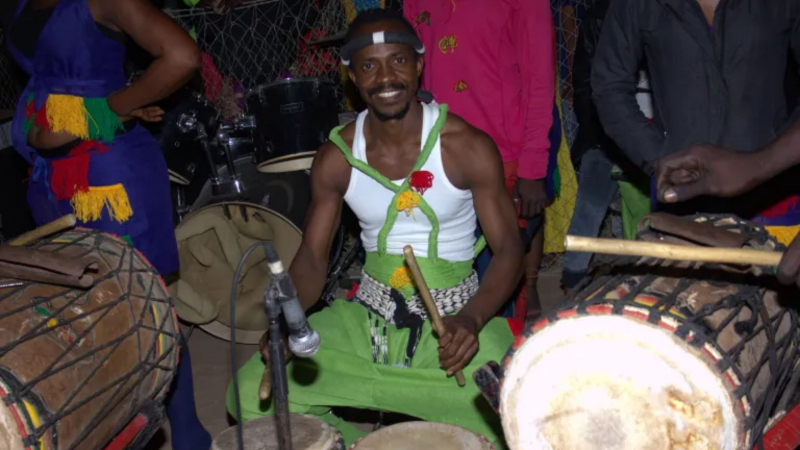
Photo: www.chronicle.gm Video: Chronicle GM -
Another most famous festival in Gambia that you cannot pass is Bob Marley Day. The day of his death, May 11, is called "Bob Marley Day" and is widely celebrated by the younger generation. You will see evidence of the Rasta tradition in many places in The Gambia, both in proud sporting of red, black, green and yellow, as well as blaring reggae music from passing bush taxis. Some youths use the day to illegally smoke Ganja while others attend electrifying gigs staged around the Kombos.
When: 11th May
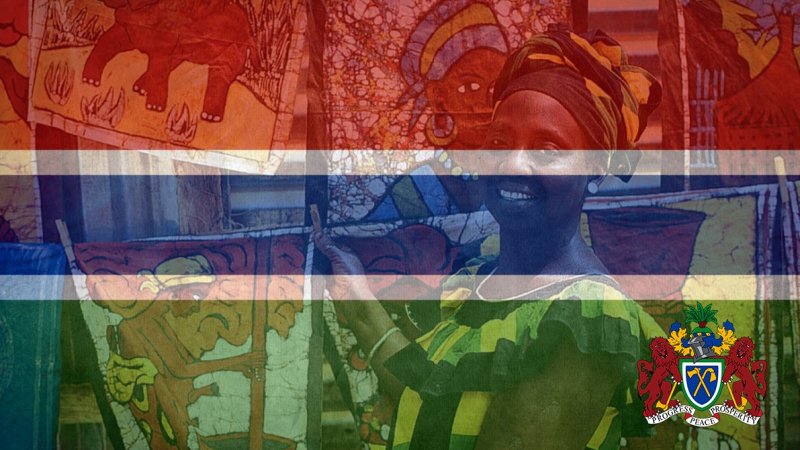
Photo: Bob Marley's FB 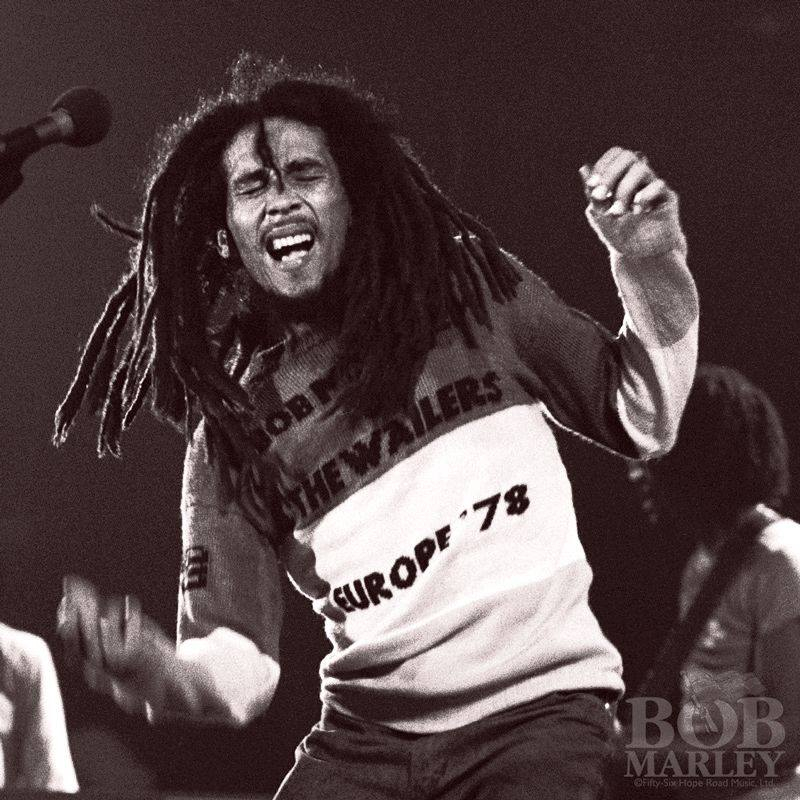
Photo: Bob Marley's FB -
Modern traditional wrestling is one of the oldest traditional sports in Gambia and wrestling festivals are a common occurrence. Leg locks are permitted but there are no patterned arm or head locks, or complicated points system. The object of the game is simply to throw one's opponent to the ground. The first wrestler down in the bout loses the contest.
The most common style of grappling is shown among the Mandinka, Fulas and Jola. It involves each opponent grabbing each other's trunks at the start of the bout. After some strategic maneuvering, each one would attempt to throw the other to the ground. Serers on the other hand prefer to go straight for the lets and render their opponent off-balance.
A wrestling match is part sport and part celebration with music. However, in Gambia it is more than just sport and entertainment. It is an important part of the traditional culture and is organized to reflect some of the most deeply rooted ideals of the societies that support it. The wrestling arena is a place to show courage, labour, strength, fair play; a place to honour the spirits of society.
When: Occasionally Organized/ during major national events
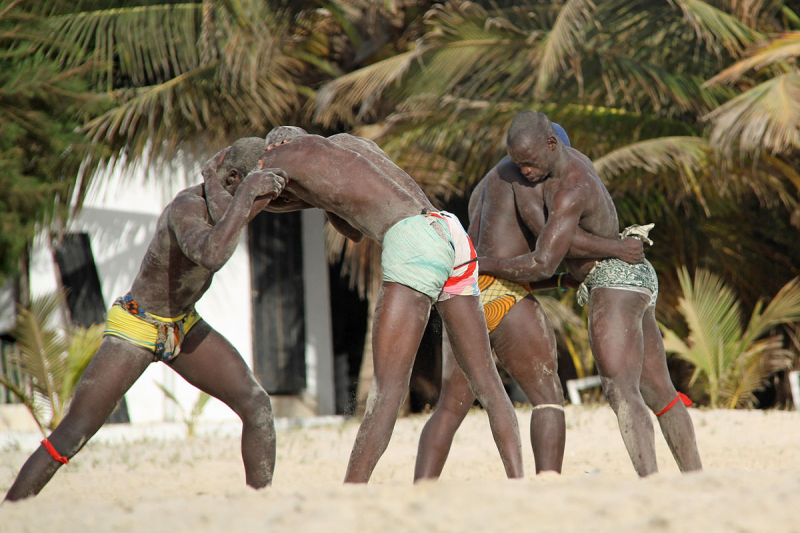
Photo: Wikimedia Commons Video: Daniel SZYSZ -
A Mandinka festival with the quest to preserve traditional cultural practices. This is a festival that takes place after harvests when food is abundant and people have plenty of time to relax before the rainy season sets in again and the fields demand a return to work. The festival showcases rare Manding masquerades such as the Koosee, konoo which were threatened with extinction.
The rebirth of this festival has awakened the new generation of Mandinka on the need to take pride in their cultural traditions. Knowledge of the past is essential if they want to take up the mantle of leadership in their societies and their manhood passage.
Where: Banjul
When: mid-March
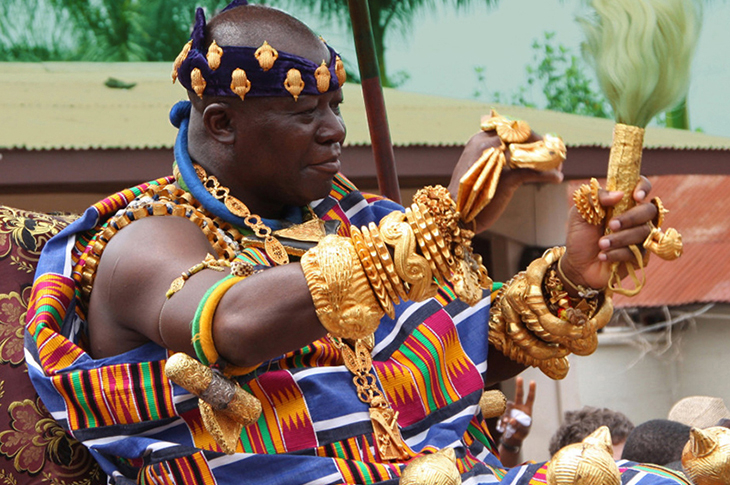
Photo: mandinkaguides.com 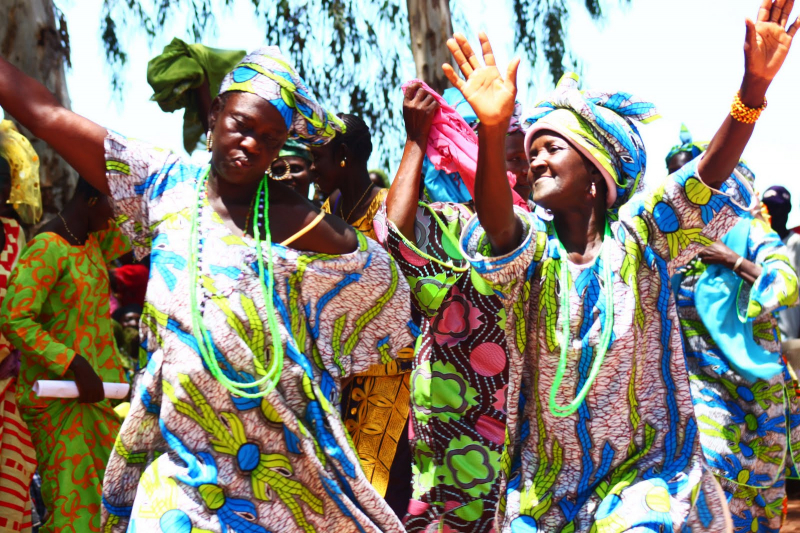
Photo: Tostan -
Gambia's Open Mic Festival is a music festival. It is regarded as the largest music night event in the country. It is well-known for promoting Gambian talents. The festival is exclusively for Gambian artists from both home and abroad.
It started off as a small monthly street show and has now become the most famous music festival in Gambia. Held on December 28th,this is the most celebrated Gambian Musical Festival held under the backdrop of rising Gambian Musical talents and showcasing the best music of the year. It is graced by thousands of both young and old people from all walks of life.
Where: Independence Stadium (Bakau)
When: 28th December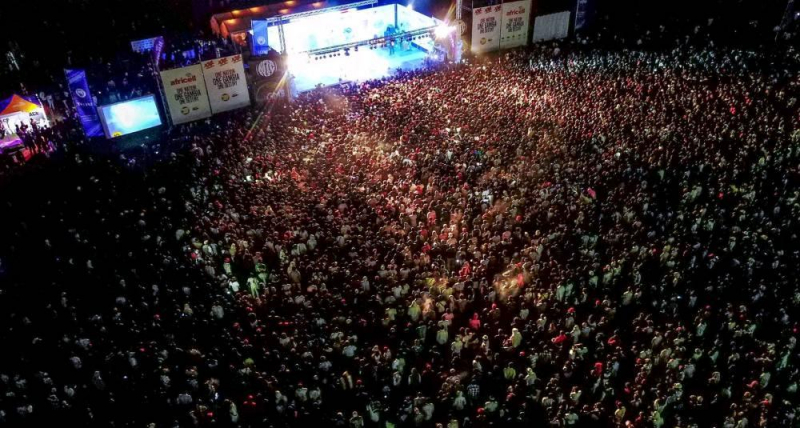
Photo: Entertainment Magazine Video: Ultimatemediagambia🇬🇲 -
Tabaski, also known as Eid Al Adha, is a public holiday much anticipated by Gambian Muslims. It commemorates Ibrahim’s willingness to sacrifice Ishmael at Allah’s command, although Allah ultimately provided a goat to sacrifice instead.
On Tabaski, Muslims in Gambia put on their best clothes and spend time visiting parents, family, and friends. They undertake traditional cleaning of their homes, and spend time at the local mosque.
But the centre of the celebration is the sacrifice of a cow, goat, or sheep. Ritual worlds are spoken over the animal before it is sacrificed. Then, a third of the meat goes to feed the poor, a third to relatives and friends, and the final third is feasted on by the family paying for the sacrifice.
Also on Tabaski, kids will roam the streets all day and into the night asking for small change to buy ice cream and candy with. Many give them money because Eid al-Adha is supposed to be a day of festivity for children.
When: July
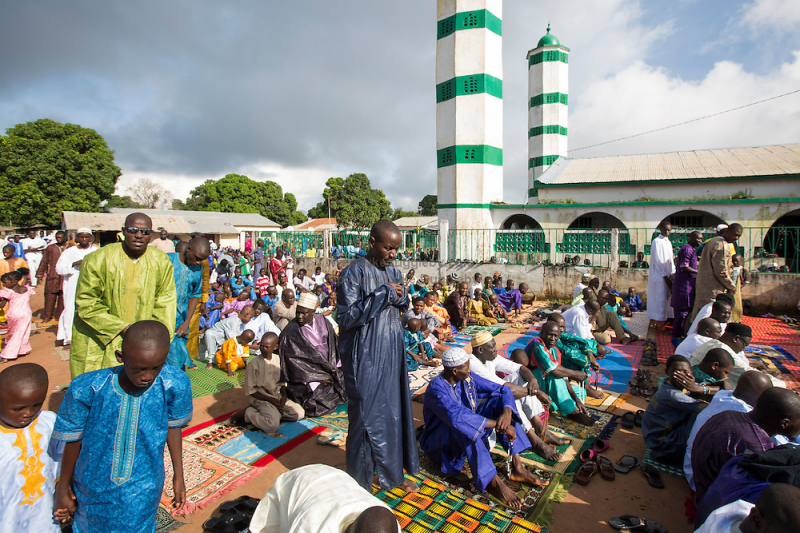
Photo: LUKE DUGGLEBY | PICTURE ARCHIVE Video: Travel Gretl












